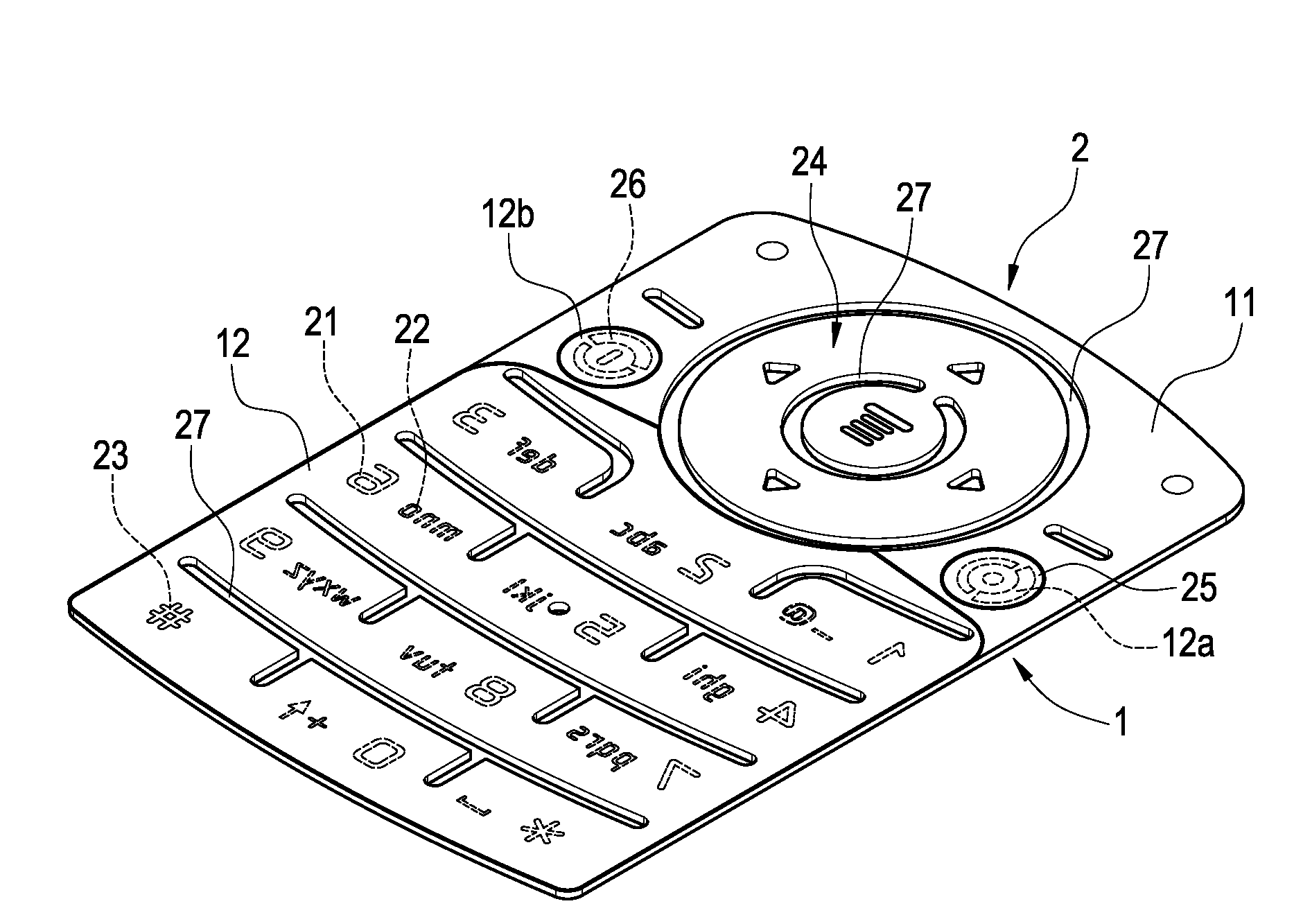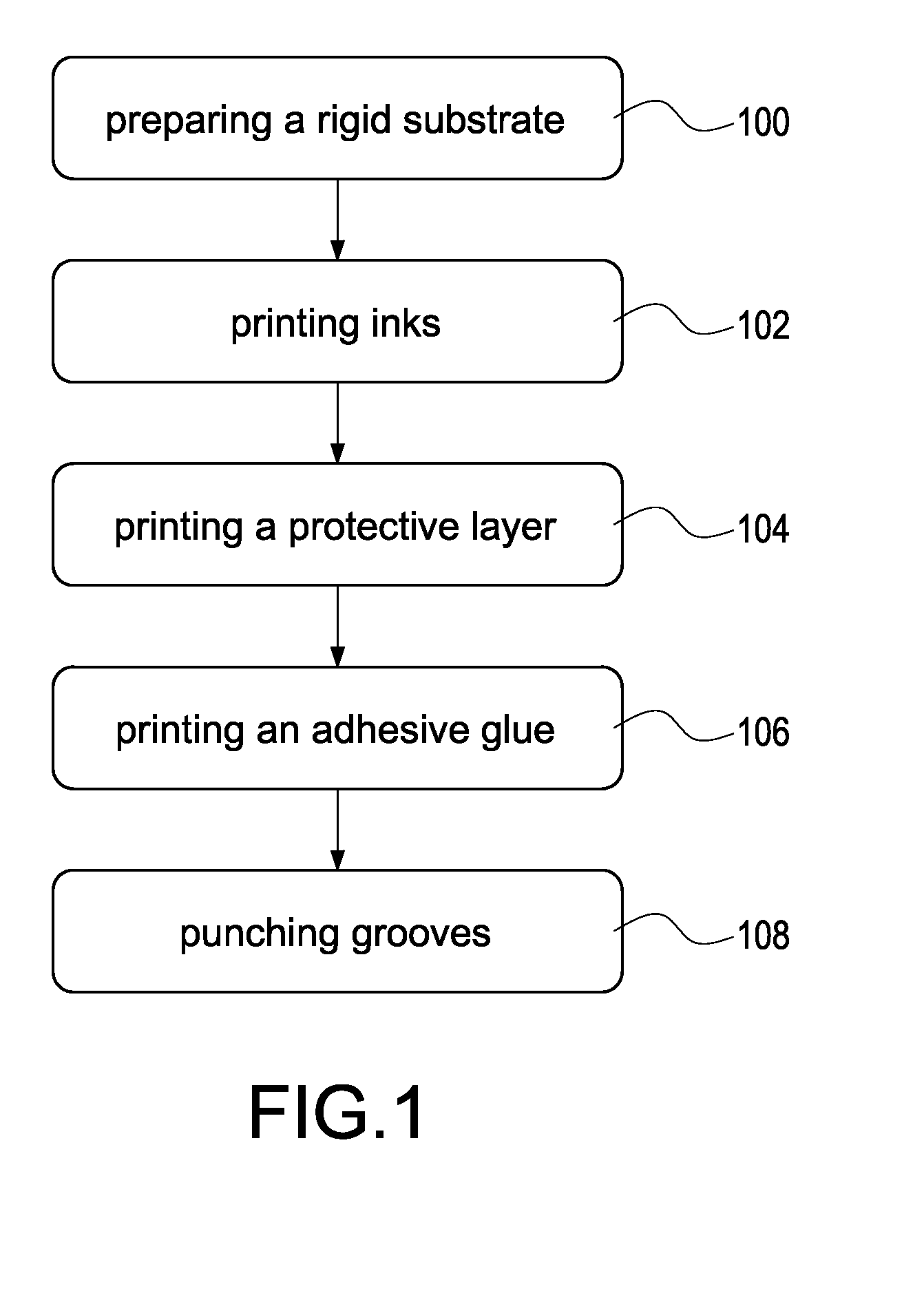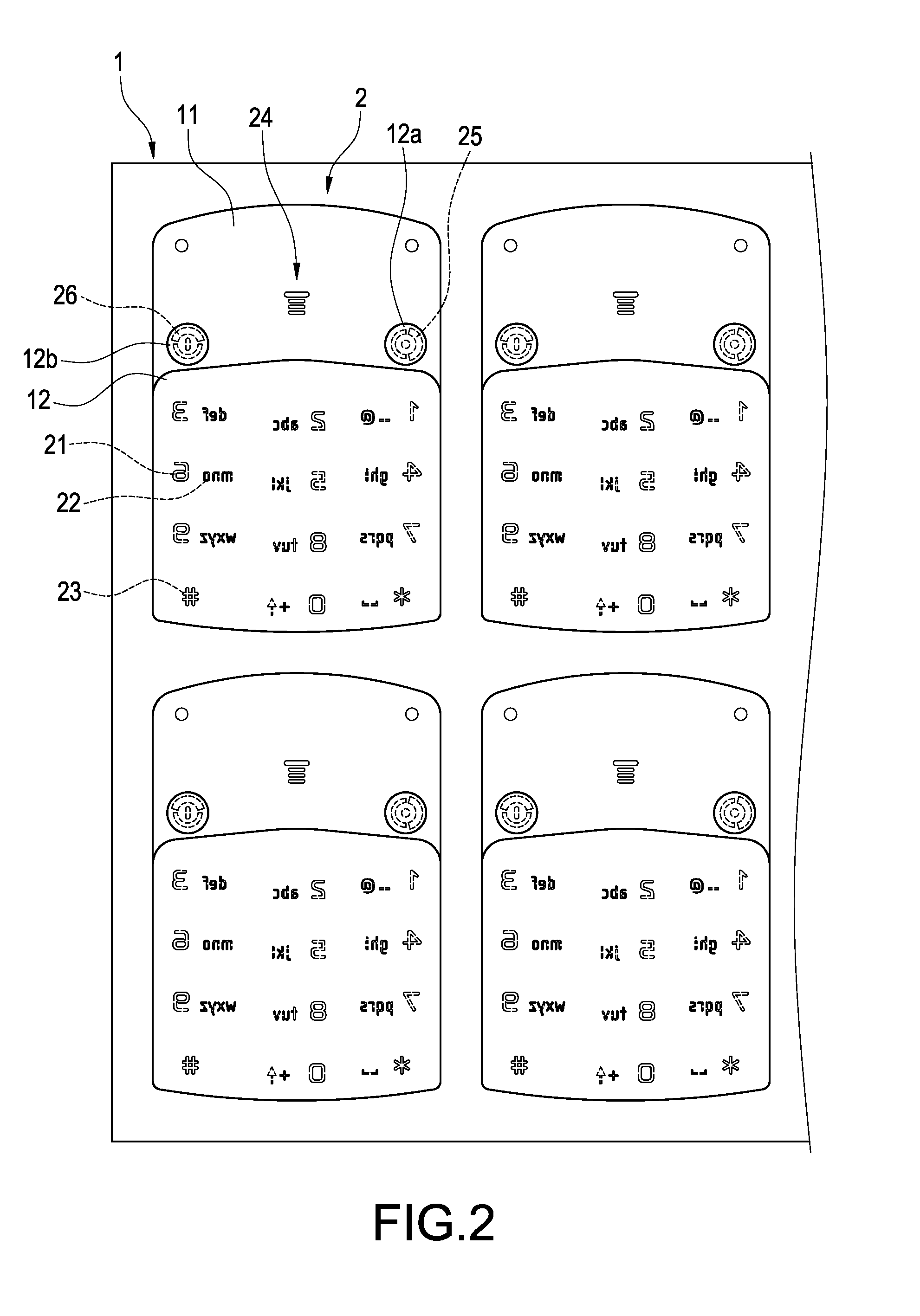Method For Manufacturing Thin Keypad Assembly And Such Assembly
a technology of keypad and assembly, which is applied in the field of keypad assembly, can solve the problems of poor contact between the circuit board and the corrosion damage of the components, affecting the smoothness of pressing the keys, and affecting the smoothness of the keys, so as to achieve the effect of keeping the surface of the keypad clean
- Summary
- Abstract
- Description
- Claims
- Application Information
AI Technical Summary
Benefits of technology
Problems solved by technology
Method used
Image
Examples
Embodiment Construction
[0031]The technical contents and detailed description of the present invention will be explained with reference to the accompanying drawings.
[0032]FIG. 1 is a schematic view showing the manufacturing process of the keypad panel of the present invention, and FIG. 2 is a front view of the keypad panel of the present invention. It can be seen that these drawings disclose a method for manufacturing a thin keypad panel. First, in the step 100, a transparent hard substrate 1 is prepared. The hard substrate 1 is a PC film plastic material.
[0033]In the step 102, a first layer 11 of black ink is printed on the surface of the hard substrate to form a plurality of panels 2, while the panels 2 are made to have hollowed numerals 21 (“0”, “1”, “2” . . . “9”), English letters 22, various symbols 23, a navigation-key pattern 24, a dialing pattern 25 and an ending pattern 26. The numerals 21, English letters 22 and various symbols 23 on the first layer 11 are printed thereon with a second layer 12 o...
PUM
 Login to View More
Login to View More Abstract
Description
Claims
Application Information
 Login to View More
Login to View More - R&D
- Intellectual Property
- Life Sciences
- Materials
- Tech Scout
- Unparalleled Data Quality
- Higher Quality Content
- 60% Fewer Hallucinations
Browse by: Latest US Patents, China's latest patents, Technical Efficacy Thesaurus, Application Domain, Technology Topic, Popular Technical Reports.
© 2025 PatSnap. All rights reserved.Legal|Privacy policy|Modern Slavery Act Transparency Statement|Sitemap|About US| Contact US: help@patsnap.com



